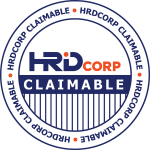PRESS STATEMENT
23 MAY 2025
On 20 May 2025, Bloomberg released a report alleging that former Prime Minister Najib Razak was present in the meetings for the procurement of Scorpene-class submarines while serving as Defence Minister in 2002. These claims were sourced from documents by the National Financial Prosecutor’s Office (PNF) in France, who are investigating a wider case involving French defence firm Thales SA and also DCN International (DCNI) which is now part of Naval Group. The Center to Combat Corruption and Cronyism (C4 Center) strongly urges the Malaysian government to cooperate fully with the French investigative authorities in their prosecutions, as well as initiate investigations and if need be, proceedings against individuals who were involved in this scandal.
Currently, an investigative magistrate in France is in the process of deciding if Abdul Razak Baginda will be subject to a trial or have his allegations dismissed, while the PNF will not be pressing charges or seeking a trial against Najib as there is no evidence he received any payments. Abdul Razak has long been known to be a close associate of Najib, with the former accompanying the latter to a meeting with DCNI key executives in June 2000, with the PNF alleging the aim of the meeting as preparing the signing of contracts including with a company, Terasasi Sdn Bhd, which was later found to have inked a deal with Thales for “consultancy services.”
Separately, the Malaysian government had signed a contract with Perimekar Sdn Bhd for coordination and support services – the PNF alleges that Terasasi Sdn Bhd, Terasasi (Hong Kong) Ltd., and Perimekar Sdn Bhd received payments from DCNI, and that the contracts signed between DCNI and the aforementioned entities were going to be used to facilitate bribes. Both Terasasi and Terasasi (Hong Kong) are owned by Abdul Razak Baginda and his father, whereas Perimekar was owned by Abdul Razak’s wife Maslinda Makzhan.
Najib Razak has not been directly implicated in this scandal and continues to deny wrongdoing, stating that his presence in the meeting was carried out in accordance with his duties as Defence Minister at the time. The PNF nonetheless maintains that the “investigations revealed that the purpose of the contracts concluded with the PERIMEKAR and TERASASI companies was to remunerate local Malaysian decision-makers, and in particular the Defence Minister Najib RAZAK and his adviser Abdul Razak BAGINDA.”
Amidst the deluge of facts that have been uncovered and presented from years of efforts by French prosecutors and Malaysian civil society alike, the crucial question remains: what does the Malaysian government plan to do about this?
The report by Bloomberg tells us that Malaysia’s lack of cooperation with the French investigators has made it difficult for them to gather the evidence necessary question Najib or potentially charge him – while the Malaysian Anti-Corruption Commission has questioned Najib about his role in this matter before, it announced in April 2024 that it was still in the process of investigating the matter. While the French authorities have seen significant breakthroughs in uncovering as well as publishing facts on this matter, there have been no public updates from the MACC. The silence calls into question Malaysia’s commitment to anti-corruption and justice, seeing as investigations would surely be expedited if the governments of Malaysia and France entered into a mutual agreement for the purposes of investigation. France has made their commitment clear, while Malaysia has not.
Besides that, the PNF highlights that a large portion of the bribes paid to the Malaysian companies involved were very likely channeled back into the Malaysian political system. A former partner of Abdul Razak in the Perimekar and Terasasi companies stated when questioned that a “Razak” would take 25% of commissions who “claimed to need it for political purposes.” The PNF report also states that besides the friends and family members of Abdul Razak, the money received would also find its way to the “dominant political party” at the time, which was UMNO, of which Najib Razak would later lead. This presents another point in which the current government has been made aware of, that is, political funding corruption as both a cause and effect of grand corruption. Following these revelations, will the government finally expedite political funding reform to prevent similar major scandals?
This case also highlights systemic loopholes in how politically-exposed persons (PEPs) may operate as proxies for politicians and parties to acquire political funds. Though they appear to be independent experts, many are personally linked to politicians and act in their interests. Malaysia’s lack of conflict of interest regulations enables this practice, as there is no requirement to declare personal ties before awarding government contracts. The actions of Najib Razak and Abdul Razak show how simple denial can deflect cronyism allegations. This underscores the urgent need for conflict of interest rules alongside political funding reform, as both are essential and interlinked.
C4 Center concludes by asking in the strongest possible terms the next steps the Madani government will be taking in order to ensure that a satisfactory resolution is brought to this issue. The reforms that have been demanded by civil society and the public are not novel nor revolutionary. The blueprint for these policies are already in existence and practiced internationally.
Public dissatisfaction is mounting, especially following the reduction of Najib’s sentence for his conviction in the SRC International case, as well as talks of enacting a house arrest law that would likely benefit him. The government’s silence regarding this matter will not be taken well, especially as the wounds from Najib’s theft of the nation’s wealth remains fresh.
END OF STATEMENT
Issued by:
Center to Combat Corruption & Cronyism (C4 Center)
For further enquiries, please contact:
c4center@gmail.com
019-216 6218
Website: https://c4center.org




